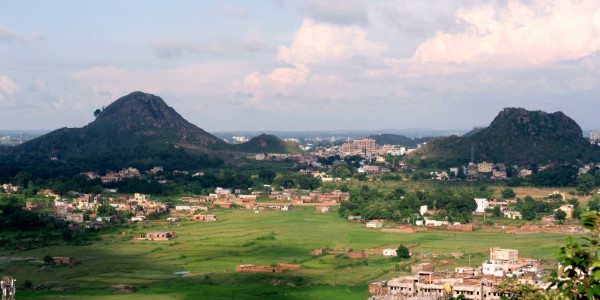Actions taken
Swadhina— A woman’s organization working for the rights of grass-root women for nearly three decades, identified three main issues of land and water governance, based on their practical, field-based experiences. The organization worked to resolve these issues by setting the following goals:
- ensuring water for irrigation purposes,
- cultivating land quality and the use of it,
- improving the role and position of women in the community.
The process itself was established in a way that the positive actions towards one aspect would have beneficial impacts onto the other aspects. In order to improve land and agricultural conditions by increasing the water holding capacity of soil, many actions were taken including the construction of small irrigation channels, planting of various trees to prevent soil erosion, and encouraging water sharing within the community. Improving the quality of agriculture was made possible by transforming about 410 acres of non-arable land into arable land by introducing compost pits, crop-rotation strategies and use of non-hybrid vegetables to families.
Women played an integral role in this project, assisting on the governing decisions regarding to land and water, and helping to execute the action plans. The process of empowerment was further ensured by giving them “Possession Certificates” in their name and providing Women’s Groups trainings on agriculture, animal care and seed preservation. The Women’s Groups later transformed into Women Farmer’s Groups.
Outcomes
The recognition of the interconnection between water, land and the role of women as decision makers lead to:
- improved living standards, especially for women;
- increased consumption of milk and vegetables, as a result of animal and seed support programs;
- environmentally-friendly agricultural practices;
- an improved economic situation, as a result of increased access to land and water;
- reduced migration of the rural population and of the overall burden on women;
- improved Women’s political participation in local government system.
Lessons learnt
The role of CSOs/NGOs is vital for achieving development. Although in some situations, the availability of resources and policies related to them is not a problem, people are not always aware of their possibilities.
The involvement of women and their active participation in the local community helps to achieve effective land and water use.
The advocacy plays a crucial role in building a bridge between public and government representatives.

